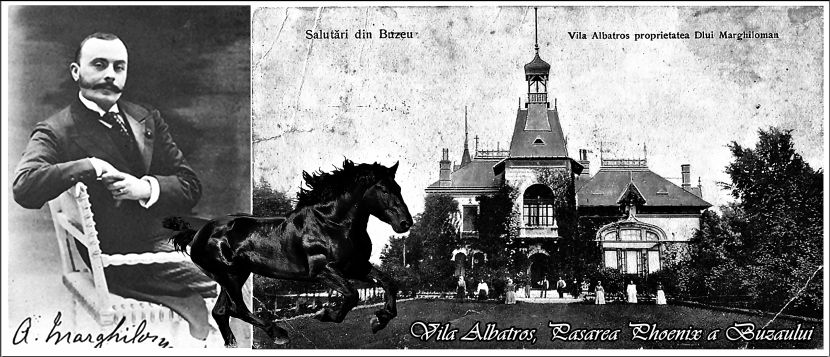Sunday, August 27, 1916. The Crown Council of Romania is convened at the Cotroceni Palace in Bucharest. Unlike the Crown Council of August 1914 where Romania’s neutrality was decided on the onset of the First World War, things were different now. King Ferdinand of Romania convened the Council of 1916 not to make a decision, but to obtain the support and consensus of the entire political class regarding Romania’s entry into the war on the side of the Entente. The decision to enter the war had been made many days before, but it was important for such a ruling to get political support. In those euphoric moments for many of the Romanian politicians, the pragmatism of the Romanian conservative leader Alexandru Marghiloman stood out, which at King Ferdinand’s requests to join a national union government refused the sovereign, telling him: “If things do not go well, it is in the interest of the Crown to have me as backup”. Marghiloman’s words will prove prophetic.
Between 1914 and 1916, Romanian Prime Minister Ionel Brătianu negotiated with the Entente to obtain the best terms for Romania’s entry into the war. Brătianu requested and the Entente finally agreed to recognize the claims on the territories inhabited by Romanians in Austria-Hungary: namely Banat, Crişana, Maramureş, Bukovina and Transylvania. Political and military terms for Romania’s entry into the war were stipulated in the conventions signed by Romania with the Entente on August 17, 1916. Ten days later, the Crown Council is convened, King Ferdinand and Prime Minister Ionel Brătianu seeking the support of the whole Romanian political class for the entry of Romania into the war on the part of the Entente.
The Crown Council of August 27, 1916 was held at the royal residence in Cotroceni, in the Great Gala Dining Room. Besides King Ferdinand I and Crown Prince Carol, among the attendees were the members of the government (Ion I.C. Brătianu, Emanoil Porumbaru, Vasile G. Morțun, Emil Costinescu, Victor Antonescu, Ion G. Duca, Alexandru Constantinescu, Alexandru G. Radovici, Constantin Angelescu), representatives of the Parliament (Mihail Ferechide, president of the Assembly of Deputies, C.F. Robescu, President of the Senate), former chairmen of the Council of Ministers (Theodor Rosetti, Petre P. Carp, Titu Maiorescu), the heads of opposition parties (Nicolae Filipescu, Take Ionescu, Alexandru Marghiloman), and former chairs of the Legislative Bodies (C. Olănescu and C. Cantacuzino-Paşcanu).
“I have summoned here the greatest men of our country, not to ask for their advice, but to ask for their support”
Right from the start of the talks, King Ferdinand said: “I summoned here the greatest men of our country, not to ask them for advice, but to ask for their support. I see the situation in such a way that we can no longer remain in neutrality; from here on out the victory of the Central Powers is out of the question; my government, which also believes it is time to start the war, also had a consultation with one of the belligerent governments”. The king asked all those present to support the decision for Romania to join the Entente, in order to fulfil the national ideal. The Prime Minister laid out the conditions of the alliance with the Entente and tried to persuade the conservative leaders. Brătianu said that “In a maelstrom like the one of the present war, in which the map of the world is changing, a country like ours cannot remain neutral until the end. It is necessary to come out of neutrality, having as ideal national unity, because who knows if in the course of the centuries we will find a better opportunity like the one presented to us today”.
Conservative leaders spoke out against this decision. Alexandru Marghiloman and Titu Maiorescu were still in favour of neutrality, while Petre P. Carp wanted Romania to join the Central Powers.
Shortly after the conclusion of the Council, King Ferdinand summoned Alexander Marghiloman, embraced him with both hands, and asked him to join a coalition government. The leader of the Conservative Party refused, but added: If things do not go well, it is in the interest of the Crown to have me as backup”.
It was a prophecy about the role that Alexandru Marghiloman would play in 1918, when he agreed to run the government after Romania was forced to make a separate peace with the Central Powers.
Bibliography:
Glenn E. Torrey, România în Primul Război Mondial [Romania in the First World War], Meteor Publishing House, Bucharest, 2014.
I.G. Duca, Memorii [Memoirs], vol. I, Expres Publishing House, Bucharest, 1992.
The Count of Saint-Aulaire, Însemnările unui diplomat de altădată: În România: 1916-1920 [The testimonies of a former diplomat: In Romania: 1916-1920], Humanitas Publishing House, Bucharest, 2016.
Constantin Argetoianu, Memorii [Memoirs], Humanitas, Bucharest, 1992.
Florin Constantiniu, O istorie sinceră a poporului român [A sincere history of the Romanian people], Encyclopaedic Universe Publishing House, Bucharest, 2008.
Translated by Laurențiu Dumitru Dologa

